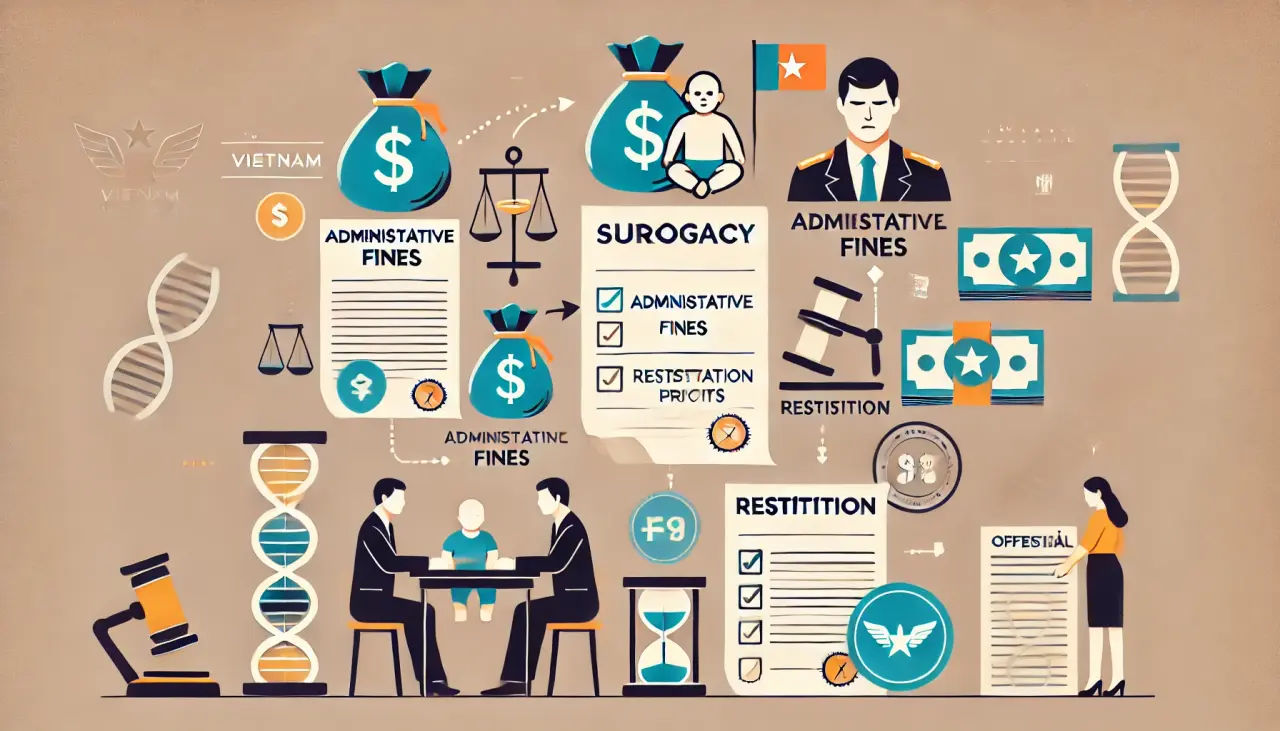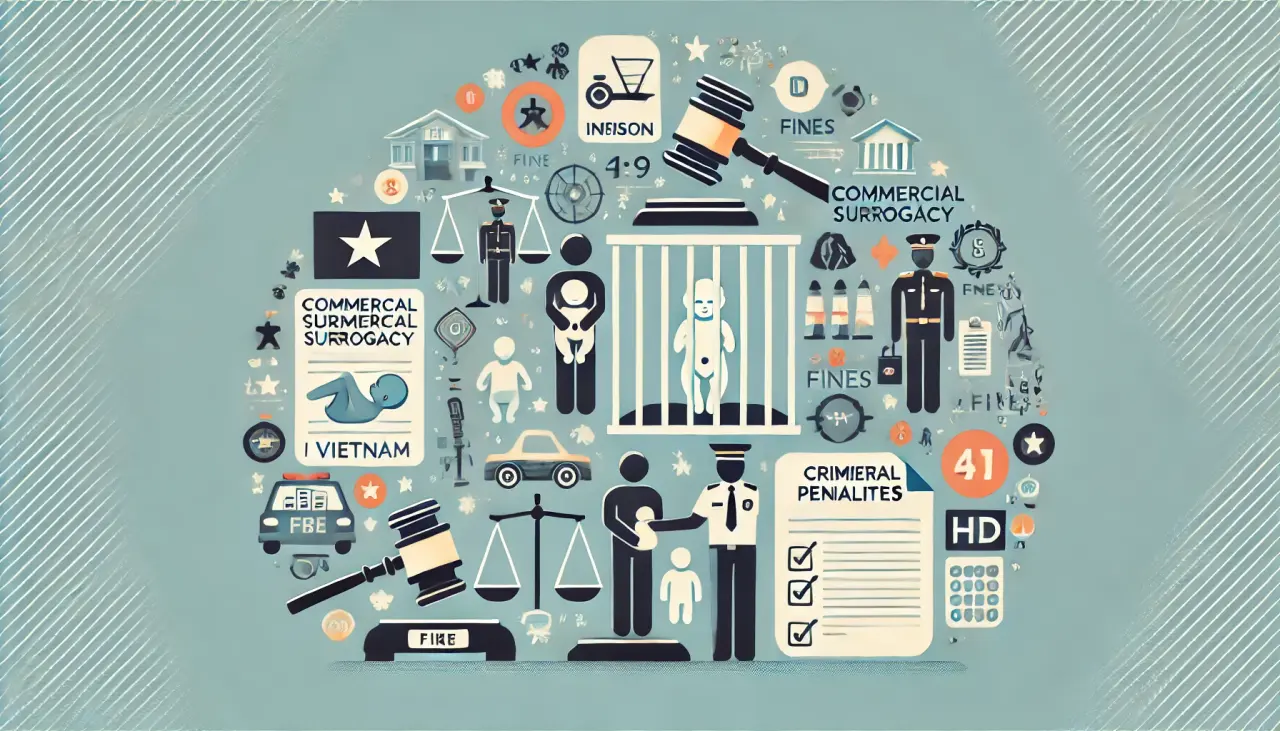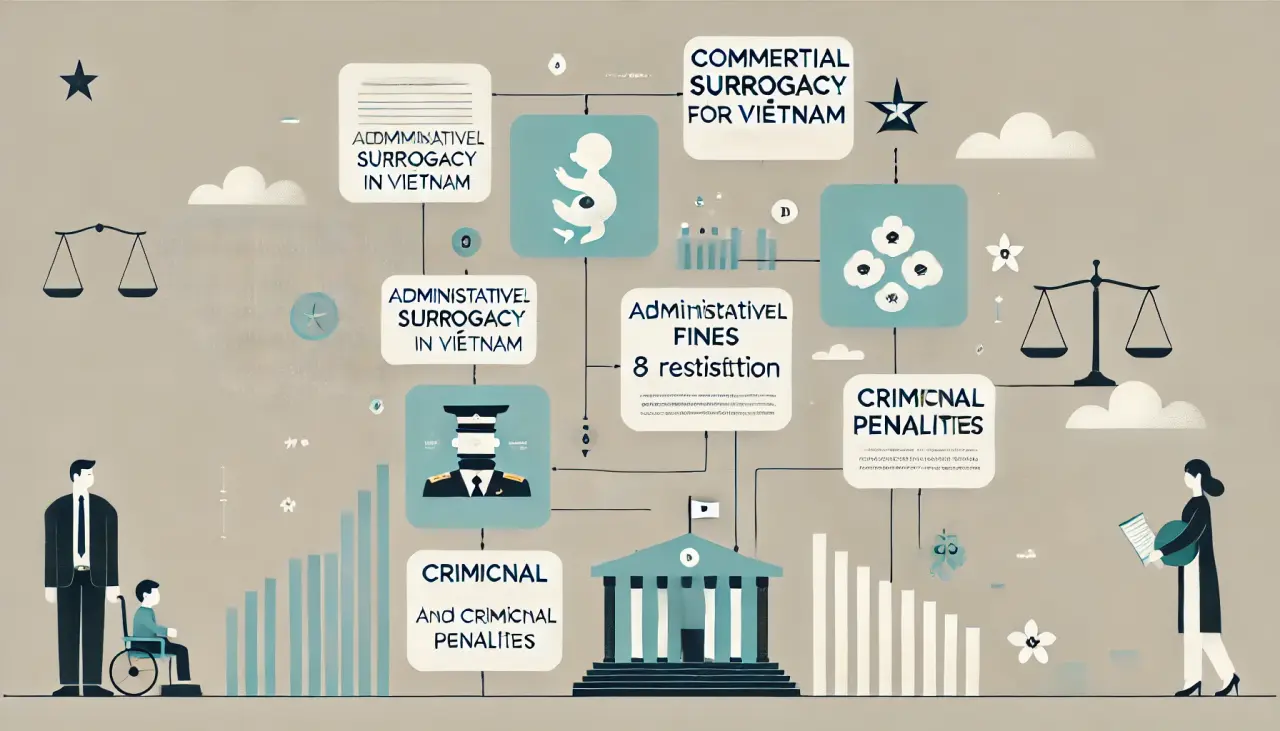
Penalties for Commercial Surrogacy in Vietnam: Legal Risks and Surrogacy Law Violations
In Vietnam, commercial surrogacy is illegal and subject to strict penalties. Individuals and organizations who engage in such activities face both administrative fines and criminal prosecution. This article breaks down the laws governing surrogacy in Vietnam and the severe consequences for violating these regulations.
1. Legal Provisions in Vietnam’s Marriage and Family Law
According to Article 5, Clause 2, Point g of Vietnam’s 2014 Marriage and Family Law:
- It is prohibited to use assisted reproductive technology for commercial purposes, including commercial surrogacy, prenatal gender selection, and cloning.
This provision highlights that surrogacy for business purposes is illegal, with severe legal consequences for violating this rule.

2. Penalties for Violating Surrogacy Regulations
Vietnam imposes strict penalties for those involved in commercial surrogacy through both administrative and criminal actions. Decree 82/2020/ND-CP, specifically Article 60, outlines these penalties:
2.1 Administrative Fines
- Engaging in commercial surrogacy or using assisted reproductive technology for business purposes can result in fines ranging from 5 million VND to 10 million VND.
2.2 Restitution of Illegal Profits
- Authorities may also require violators to return any illegal profits gained from commercial surrogacy activities.
3. Penalty Details for Organizations Involved in Surrogacy
As per Decree 82/2020/ND-CP, Article 4, Clause 4:
- If the violation is committed by an organization, the fine imposed will be double that of an individual violator.
Thus, if an organization is found facilitating commercial surrogacy, the penalties are significantly harsher.

4. Criminal Penalties for Commercial Surrogacy
Vietnam’s Criminal Code (2015), Article 187, outlines severe criminal penalties for individuals or organizations involved in commercial surrogacy:
4.1 Penalties for Surrogacy Organizers
- Those organizing commercial surrogacy face fines ranging from 50 million VND to 200 million VND, and may face a sentence of either 2 years of community service or 3 to 24 months of imprisonment.
4.2 Severe Cases of Commercial Surrogacy
If the surrogacy involves any of the following conditions, the violator may face 1 to 5 years in prison:
- Surrogacy involves two or more people.
- Surrogacy is repeated or conducted multiple times.
- Surrogacy is carried out by an institution or organization.
- The violator has previously committed surrogacy-related crimes.
4.3 Additional Penalties
- The individual may also face fines between 10 million VND and 50 million VND and could be prohibited from holding certain positions or working in specific fields for 1 to 5 years.
4.4 Parental Rights Consequences
- Parents involved in commercial surrogacy may lose parental rights to children born through illegal surrogacy. They may also face 2 to 4 years of imprisonment, along with fines ranging from 5 million VND to 15 million VND.

5. Summary of Legal Consequences
In Vietnam, commercial surrogacy is illegal, and violators face both administrative fines and criminal penalties. The penalties are designed to discourage such practices and protect the integrity of the country’s reproductive laws.
Administrative Penalties:
- Fines from 5 million VND to 10 million VND.
- Restitution of illegal profits.
Criminal Penalties:
- Fines up to 200 million VND.
- Imprisonment from 3 months to 5 years.
In summary, anyone considering commercial surrogacy in Vietnam should be aware of the severe legal risks involved. Violating these laws can lead to significant financial penalties, criminal charges, and even the loss of parental rights.
Note: Laws are subject to change. Always consult legal experts or authorities for the most up-to-date information.